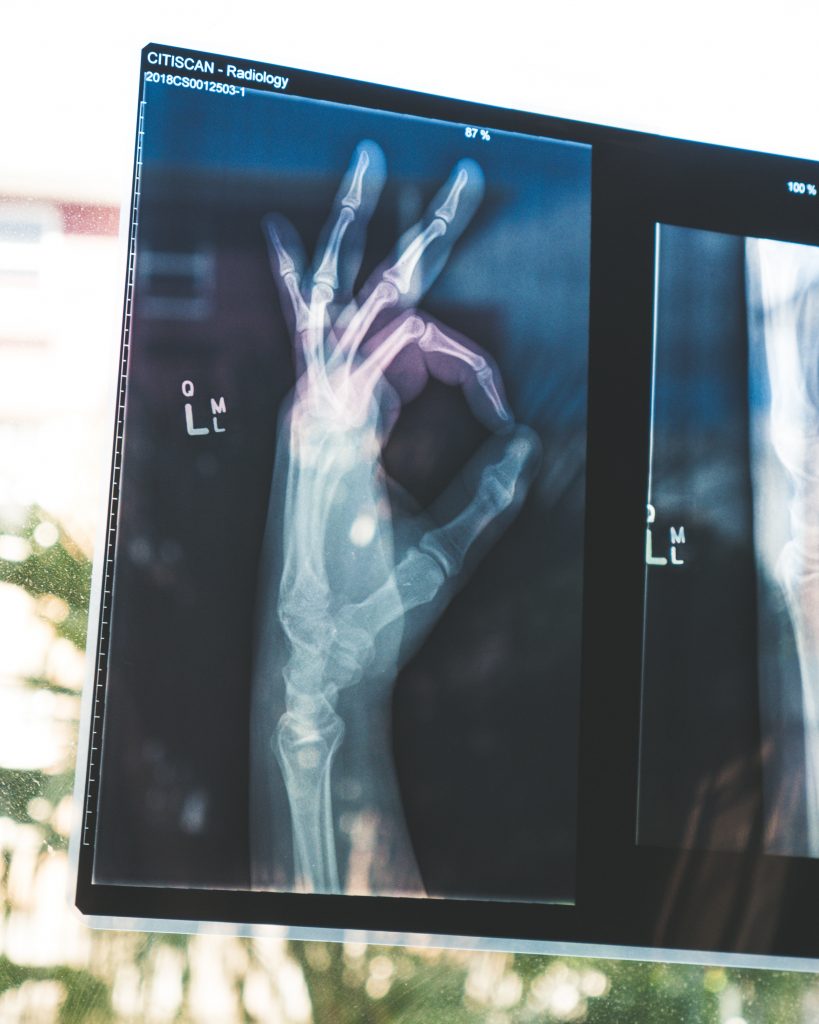Bone Density Testing
If you are aged 70+, have been diagnosed with Osteoporosis or Osteopenia, have a spinal deformity, suffered a previous minimal trauma fracture or regularly use certain medications such as steroids, there is one important question you should ask yourself:
“Am I dense?” (In your bones, that is.)

Risk Factors
If you fall into any of the above risk categories, it is likely that your GP or Specialist already refers you for Bone Density Testing (BMD) every two to five years (or every 12 months if you have an additional condition such as Hypogonadism).
However, if you do not fall into any of these categories, but have been diagnosed with a thyroid condition, chronic liver or renal disease, some endocrine or autoimmune diseases (such as Coeliac or Crohn’s), Rheumatoid Arthritis or Diabetes (to name a few), you may be surprised to learn that you might also need to be tested every two years.
Additionally, you may be referred for BMD testing following a poor blood test result measuring your calcium levels or after sustaining one or more minimal trauma fractures, as a precaution.
Why BMD Testing?
BMD testing is the single most reliable indicator of Osteoporosis (when bones become less dense, lose strength and break easily due to calcium loss) and Osteopenia (a milder form of osteoporosis). It can also determine the likelihood of future bone fractures.
It is important to know if you are at risk of these conditions, so you can make necessary lifestyle changes early and achieve a better long term prognosis. This may include increasing your calcium intake/absorption levels and avoiding physical activities where there is a high risk of falling or impact on your bones.
It is a common misconception that ‘only older people’ (particularly females) experience Osteoporosis and therefore require BMD testing. We know that age is not the only risk factor.
The aforementioned medical conditions, certain medications and other factors can also deplete the bones of necessary mineral and calcium absorption, leaving them more brittle and susceptible to damage, regardless of your age, gender, lifestyle or physical fitness level.
What Happens During a BMD Test?
BMD testing can be conducted either throughout the entire body or in specific regions. The most common areas isolated for specific testing include the spine, hips, legs and arms, because they are the most susceptible to fracture.
Testing is quick, safe and painless. You simply lie flat on a padded table while a low energy x-ray beam passes through each area of your body being tested.
The x-ray machine analyses the information it records, converting it into an image of your skeleton and measuring the amount of bone in each area being tested, to determine if there has been any loss of bone mass.
Each measurement takes approximately 60 seconds to perform. Most BMD tests take around 15 minutes and you can go home straight afterwards.
You may need to make a follow-up appointment with your GP to discuss your results. BMD test results can be complicated and difficult to interpret, so your GP will explain them to you; as well as any lifestyle and/or dietary changes you may need to make to improve your condition.
You may also need repeat BMD testing at regular intervals (if you meet the Medicare criteria for testing) to ensure any treatment you receive is working.
Contact Us
Early intervention is important.
If you fall into any of the aforementioned risk categories or simply ‘feel it in your bones’ that something isn’t quite right, it is a good idea to ask your GP or Specialist for a referral for BMD testing to rule out certain conditions, or get on top of them as soon as possible.
Once you have a referral which meets Medicare criteria, we can provide you with a prompt appointment, which we will bulk-bill (even without a Health Care or Pension Concession Card).
Simply visit www.irisimaging.net.au for more information or contact one of our clinics to make an appointment:
Helensvale:
P: 07 5573 3580
E: Helensvale@irisimaging.net.au
Mount Tamborine:
P: 07 5689 3900
E: tamborine@irisimaging.net.au
Browns Plains:
P: 07 3800 4766
E: brownsplains@irisimaging.net.au
